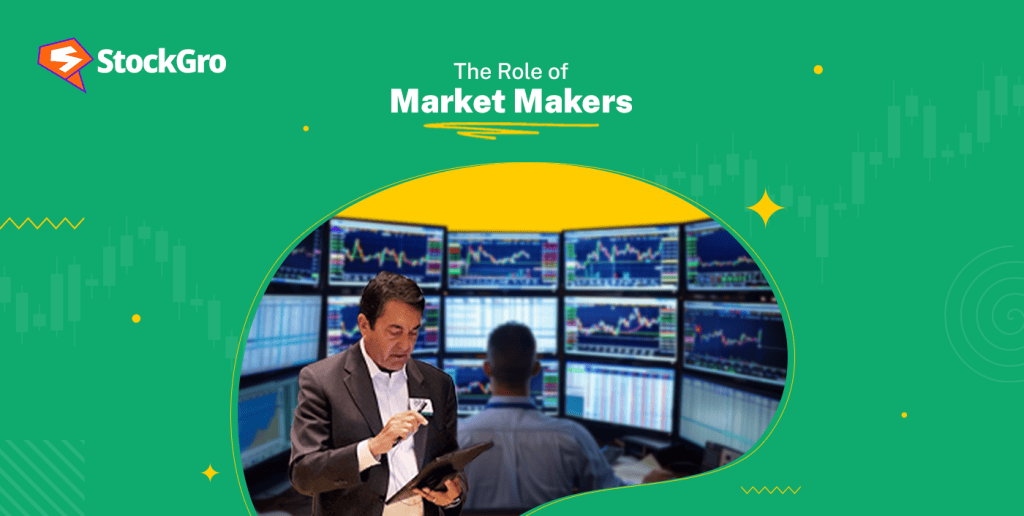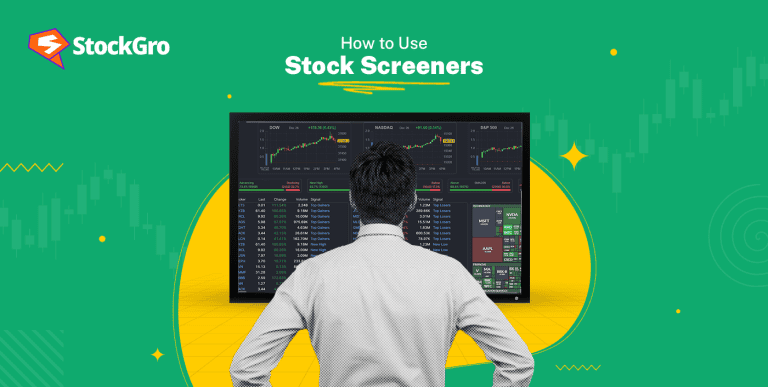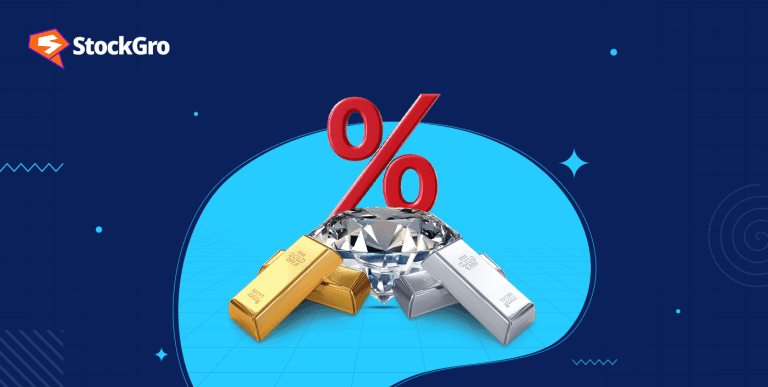
A key benefit of investing in stocks is the power of market forces. They help drive the prices based on the perception of investors. Moreover, when there is a clash in these perceptions, investors get the opportunity to enter or exit the market at multiple points due to fluctuations. There are multiple market forces in action for these.
One such crucial force are market makers. They are the most active participants, heavily driving the prices in the market. They use highly equipped trading techniques, tools, and have significant market knowledge with experience. Market markets usually trade with heavy volume.
They play a significant role in the overall functioning of a market. Let’s understand these market participants in detail and explore their role.
Who are market makers?
Market participants that actively trade in the market, take double positions and drive the bid-ask spread are known as market makers. They handle multiple folios or deal with heavy volume in the market. While trading in an arbitrage method, they would take buy and sell positions to benefit from the market movement.
Due to their pressure, prices are driven in the market. Moreover, retail investors also perceive the market spread and price created by them to trade accordingly. Market participants are also known for providing required liquidity on the stock exchanges.
They use complex trading techniques, tools and professional experts to take short-term market actions. Market markets also have stock liquidity to help their clients put orders as per the requirements. They usually earn profit from market gaps created with varied trades.
They monitor and operate the whole stock exchange with different instruments like normal equities, futures, options, etc. In India, these entities require separate registration at the Securities Exchange Board of India (SEBI). Moreover, stock exchanges appoint Designated Market Makers (DMM), who help infuse liquidity in the market with their 2-sided trades.
Also, read Exploring Volume in the Stock Market
Significance of market makers
Investing in the stock market is affected by many factors and market maker’s actions are one of them. They play a crucial role in driving the prices on stock exchanges.
- Their arbitrage trading and volume help in price discovery.
- Frequent trading by these entities fluctuates the prices, which helps provide multiple entry-exit opportunities in the market.
- Market sentiment is highly driven by their actions, and investors usually follow such a crowd.
- Their short-term trading absorbs the market volatility and helps create significant price levels.
- Liquidity in the market is highly driven by market makers.
Overall, they provide a significant base for market functioning and help smoothen the trading process.
Role of market makers
The setup of stock exchanges and its various elements, such as retail investors, instruments, market norms, etc., are affected by the activities of market makers. Therefore, the role of market makers will include aspects as follows:
- Market makers help create the buy-ask spread, volume and liquidity for a particular stock in the market.
- Their bulk market orders create the market sentiment and set up the mood for investors in the market.
- Their active trading helps continue the capital flow and transparency in the market.
- Their transactions usually respond to marketing news or regulatory reforms.
Functions of market makers are closely attuned with the market and play a crucial role in deriving required liquidity in the market.
Skills required
Individuals willing to function as market makers require the crucial skills of trading, analysis, risk management, technological tools and market acumen. Moreover, the high volume and frequency are key characteristics of a market maker. Therefore, individuals would require a significant corpus, client base and regulatory approval for trading. Apart from this, strong hold over different instruments and their market is crucial.
Check this out: Top 10 ways to learn stock market trading
Examples of market makers
Brokerage firms, stock market sections in investment banks, High-Frequency Trading firms (HFTs), proprietary trading firms, etc., are some common market makers. Investors can observe their effect on market functions on a day-to-day basis.
History is evident how market makers can significantly influence the stock exchanges. The case of Lehman Brothers is a classic example of how market makers affect the market functioning. It was a financial advisory firm that invested heavily in mortgages and derivatives during the housing bubble episode. When it filed bankruptcy in the market, it became a crucial driver of global market crashes in 2008.
Summary
Stock market investments are products of varied factors acting in the market. Market makers are one such crucial stakeholders, which drive the market prices and infuse liquidity in the market. They trade in heavy volume, also have inventory and facilitates the process of price discovery. Usually, HFT firms, financial advisories, investment banks and brokerage firms function as market makers.
Explore more: Best Stock Market Forums and Communities for Investors
FAQs
- What is the power of market makers?
They are key investors and can significantly drive the price of shares in the stock market. Moreover, they usually trade or invest with a bulk deal, which affects the overall liquidity in the market. The power of market makers lies in their ability to decide a market sentiment.
- What is an example of a market maker?
Brokerage firms are one of the best examples of market makers who trade for their clients along with their team. Moreover, they profit from the price difference, which can also encourage them to take arbitrage trades.
- Do market makers hold inventory?
Yes market makers may have inventory of stocks to trade as per the investor’s requirements. Moreover, it can help them maintain the required liquidity based on the market conditions.
- What are market takers?
They are less active in nature and would trade with potentially lower numbers of shares. They require liquidity and would pay the ask without putting substantial power on bid-ask spread.
- How do market makers affect the stock exchanges?
These entities are trading with significant volume and can potentially dominate the market spread for a particular stock with their bulk orders. They drive the market liquidity. Usually, their arbitrage trades affect both buy and sell side for a security’s transactions.

